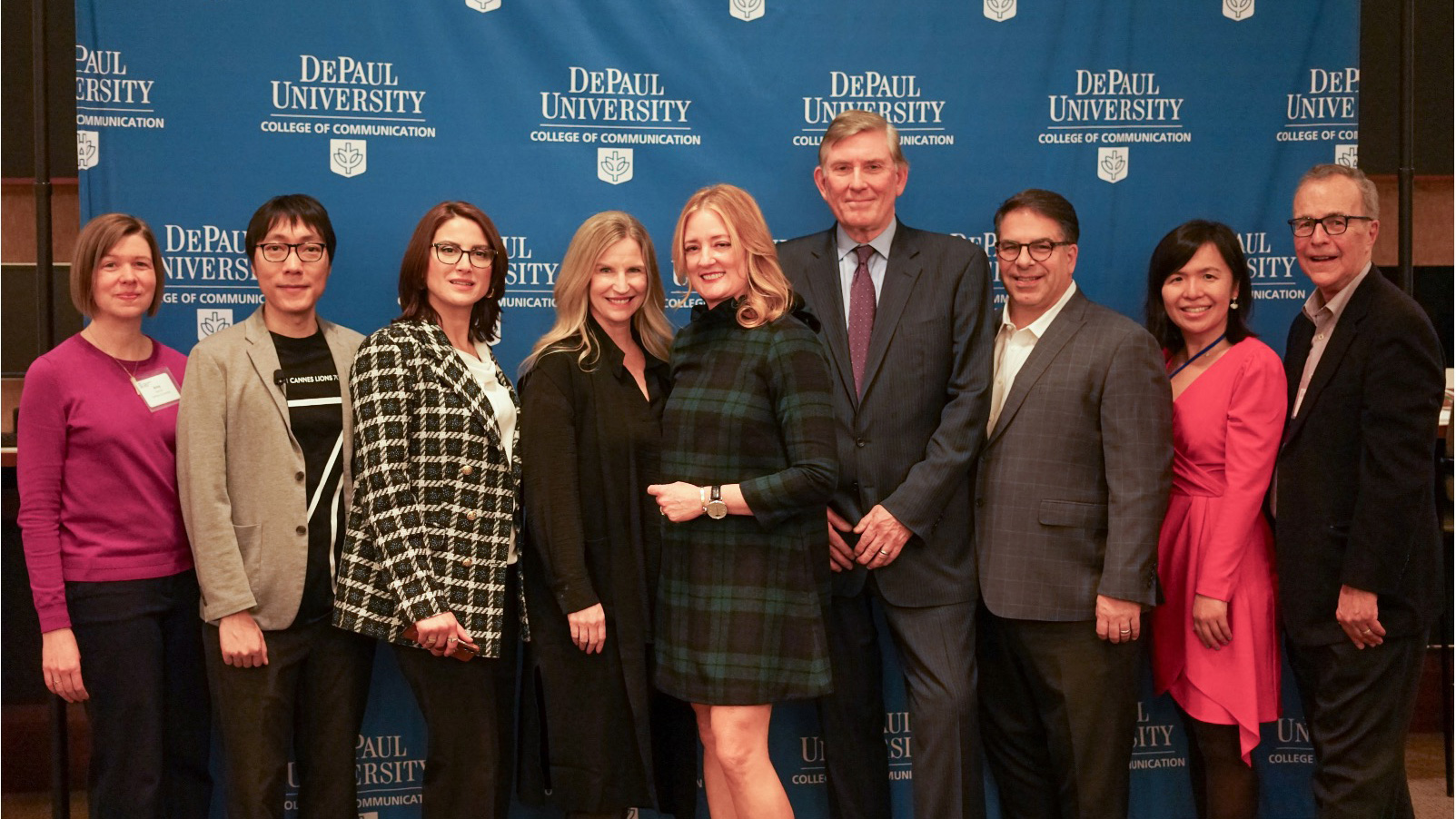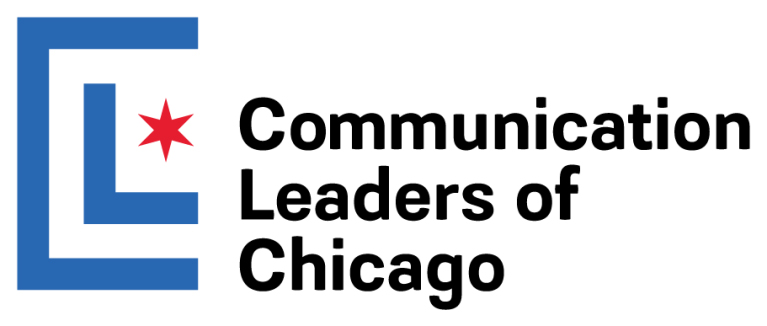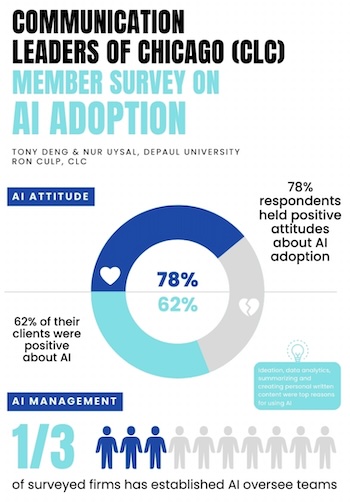
L-R: Journalism Professional Lecturer Amy Merrick, Public Relations and Advertising Assistant Professor Tony Deng, Public Relations and Advertising Associate Professor Nur Uysal, College of Communication Dean Lexa Murphy, Golin Global Chief Client Officer Ginger Porter, Co-Chair of the Communication Leaders of Chicago Jack Modzelewski, DePaul University President Rob Manuel, Professor and Chair of the Public Relations and Advertising program Kelly Chu, Professional Director of the Graduate Public Relations and Advertising program Ron Culp. Photo Credit: Shua Soares/DePaul UniversityChicago communication professionals are bullish about the adoption of generative artificial intelligence
(AI) in their organizations, according to a first-of-its-kind research study conducted by DePaul University's College of Communication and underwritten by Communication Leaders of Chicago (CLC). The research is CLC's first major initiative in the new organization's mission to create meaningful ways to strengthen the PR profession. The AI research findings were discussed on Thursday February 22, 2024 at a gathering of some 60 senior communication leaders at the College of Communication's Center for Communication Engagement on DePaul's Loop campus.
Key highlights of the survey of more than 80 Chicago-area communication leaders:
- 78 percent of respondents said they held slightly to extremely positive attitudes, 2024 about AI adoption, while 62 percent of their clients (including internal corporate clients) had positive attitudes. Negative attitudes about AI adoption were low.
- Only 33 percent of the respondents said their firms currently have a dedicated department or team responsible for managing and overseeing the use of AI. Those that do have appointed AI compliance groups, governance committees, and AI task forces and communication labs.
- The top three concerns about adopting AI in strategic communication were AI output quality/accuracy, ethical issues, and privacy/data security.
- For current AI use, survey respondents ranked creative content (43 percent), research and data analytics (30 percent), administrative (18 percent), and social media management (16 percent) as top applications in their companies.
- The top three AI/tech organizational priorities for 2024 were data-driven strategies, authenticated AI generated content, and AI workflow management. Other priorities cited by respondents were AI-derived business intelligence and building AI-enabled teams.

“The CLC-DePaul research addressed practical questions about the fundamental challenges and issues
that communicators and public relations professionals face in embracing generative AI," said Jack Modzelewski, co-chair of the CLC board. “It's clear that more firms need to impose AI operating policies and guidelines as AI-enabled work expands. And as an industry we need be a leader in AI best practices and applications.that communicators and public relations professionals face in embracing generative AI," said Jack Modzelewski, co-chair of the CLC board.“We believe this collaboration is the first of its kind in AI-human communication research between an university research lab and a professional industry organization," said Lexa Murphy, dean of DePaul's College of Communication. “This partnership will open an important dialogue and provide a strategic platform for advancing AI-driven communication research and practices."

Findings from the AI-human communication research conducted by College of Communication professors Tony Deng and Nur Uysal and underwritten by Communication Leaders of Chicago. Infographic courtesy of O'Dwyer's Public Relations News.DePaul and CLC will publish their full research report this Spring. Other highlights of the survey:
- For their own AI use, respondents listed ideation and inspired thinking, data analytics, and summarizing and creating personal written content as their top reasons for employing AI software and tools.
- Half of the respondents said AI work product is permitted in their companies on a limited-use basis, and 20 percent said it is permitted for “any use." Forty-four percent said their organizations have an AI policy or code of conduct.
- A third of respondents said AI is discussed weekly in meetings and another 37 percent said it is discussed “ad hoc."
Survey respondents were communication leaders and senior professionals at corporations, agencies and other organizations based in the Chicago metropolitan area. Participants average nearly 30 years of experience in the field of communications. The DePaul researchers will expand their survey of comms leaders and conduct other AI research thanks to the CLC grant.
Communication Leaders of Chicago was launched last December during its Distinguished Leader Award reception honoring Cubs head of communications, Julian Green. Learn more on the group's website.
Originally published on Culpwrit, a blog about public relations career management by Ron Culp, Professional in Residence for the Public Relations and Advertising program in the College of Communication and Communication Leaders of Chicago board member.